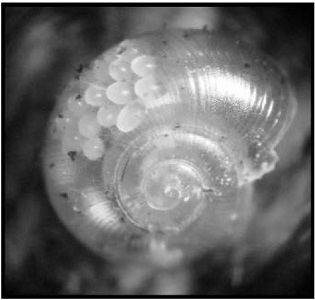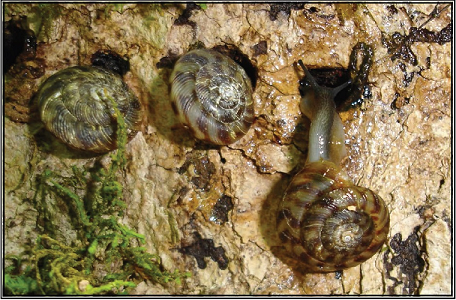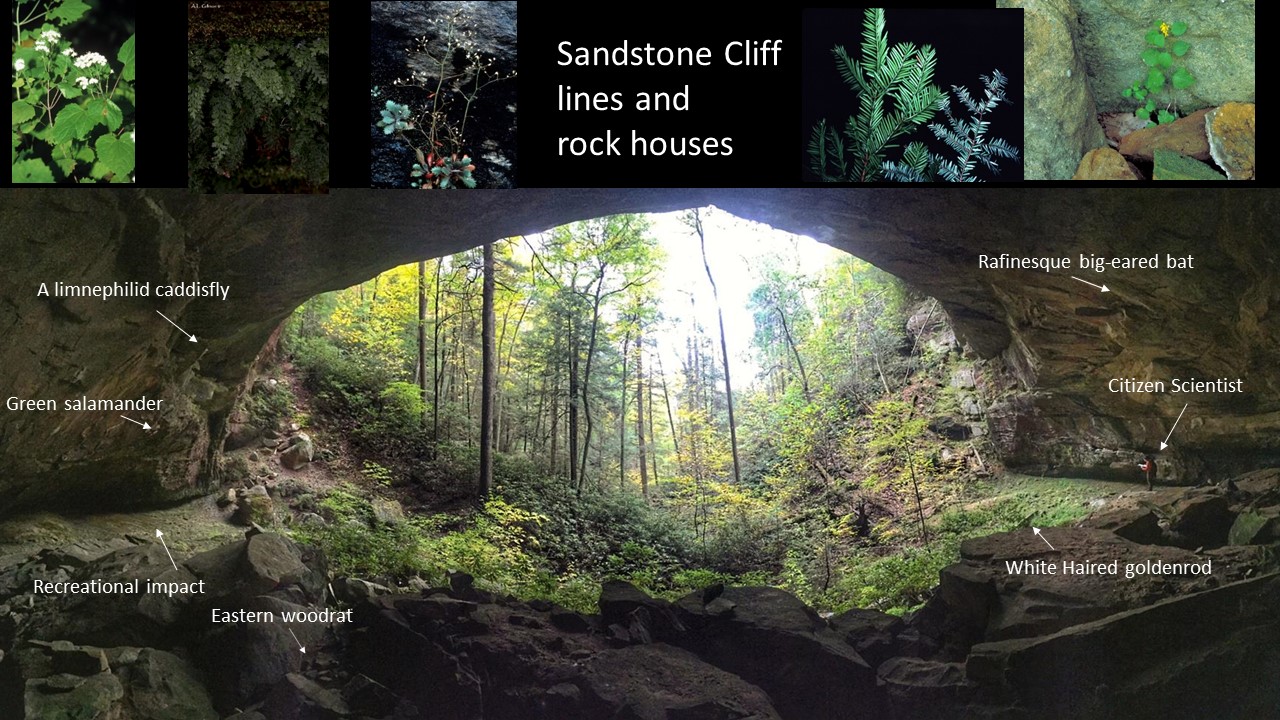KNP statewide survey of terrestrial molluscs:
the land snails
The Office of Kentucky Nature Preserves hosted a statewide Community Science program to allow the public to participate in a ground-breaking biodiversity study focusing on terrestrial mollusks (land snails to you and me). This is a project any hiker or group can help with if they can pick up a shell, take GPS coordinates of where it was found, and send it in. It is that easy, plus it doesn't involve collecting live animals or disturbing sensitive habitats.
Why study snails?
While there remains a scarcity of information and understanding of the value of land snails, a building body of evidence suggests that snails are even more important than we imagined. In Kentucky, snails are a food and calcium source to small mammals like shrews, moles and mice which are consumed by top predators such as owls, wild turkeys, grouse, wood thrushes, reptiles and amphibians like snakes, turtles, lizards, salamanders and frogs which are consumed by a number of predators and many invertebrates.
Declining land snail populations can have ripple effects to surrounding ecosystems. Many birds have declined as a result of disappearing land snails. A lack of snail shells (a known calcium source) in the bird’s diet causes the bird to lay eggs with thinner shells which break prematurely, reducing the bird’s reproductive success. Sensitive to changes in the environment such as chemical pollution, forest fires, and excessive land clearing, native land snails could provide early warning signs to impending “ecosystem-collapse” in both natural and agricultural lands of Kentucky. Land snails are also linked to nutrient cycling as well as dispersal of fungal and slime mold spores, which in turn sustain plant life. As part of the lesser majority, land snails are the building blocks of healthy, functioning ecosystems.
Although we know snails as a group are important, we don't know much about Kentucky's species. Several neighboring states have federally endangered snail species. Some are even extinct. By learning more about our snail populations we can work toward restoration of declining species and keep them from becoming endangered (or worse).
Project Results!
The Terrestrial Mollusk Biodiversity Inventory Project, funded by Office of Kentucky Nature Preserves (OKNP) and Kentucky Heritage Lands Conservation Fund (KHLCF) concluded its 18-month statewide survey at the end of June 2020. An integral component of the project was the unprecedented Community Science Initiative with 110 volunteers from a wide variety of state and federal agencies, museums, universities, nature preserves, state parks, private biological consulting firms, and volunteers from across the state. This cadre of individuals collectively assisted the project managers, Dan and Judy Dourson, of Dourson Biological Consulting in sampling all 120 counties in Kentucky documenting a staggering:
- 1,730 new county records
- 13 new state records
- 12 species potentially new to science (under review)
- Over 29,036 individual specimens identified
Kentucky is one of two states to have successfully completed a survey of this magnitude. The information is a great contribution to the overall knowledge of Kentucky's incredible fauna. For more information about the project contact kysnailproject@gmail.com.

Multi-Resource Monitoring of Rare Communities in the Red River Gorge of the Daniel Boone National Forest
The
Office of Kentucky Nature Preserves, in partnership with the Daniel Boone
National Forest, was awarded competitive funding to develop a citizen science
program monitoring rare species and archaeological resources in sandstone rock shelters in the Red
River Gorge Geological area. By next year, we will be opening the program
up to our volunteers. Stay tuned! More information can be found here.
